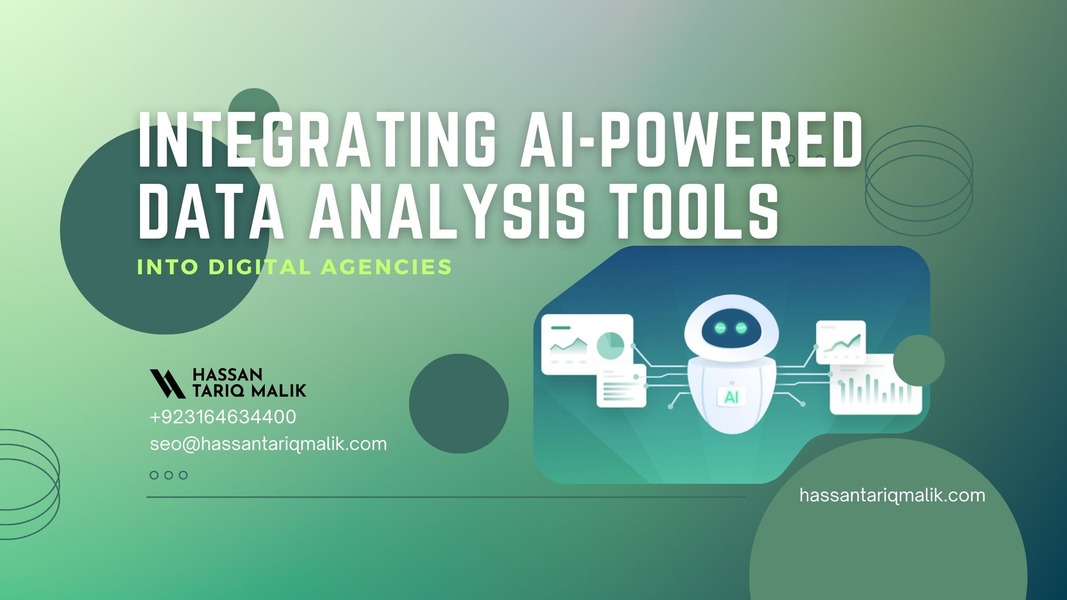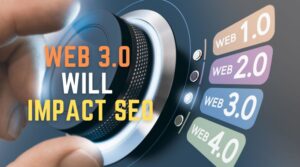AI has become a game-changing technology for the digital marketing sector. AI is now revolutionizing how companies run and engage with their clients. To improve their services and stay on top of the game, digital agencies are now looking to integrate AI-powered data analysis tools into their operations.
What is data analysis?
Data analysis is the process of examining large and complex datasets to extract meaningful insights and patterns. It involves using statistical and computational methods to organize, interpret, and draw conclusions from raw data.
Data analysis has long been used by digital agencies to create and implement effective digital marketing campaigns. Yet, managing and analyzing this data manually has become difficult due to the rise in the volume of data generated by enterprises. Here’s where artificial intelligence (AI) enters the picture, giving digital firms cutting-edge data analysis tools and algorithms to automate these procedures.
AI-powered data analysis tools Sectors
AI-powered data analysis tools are being adopted across various sectors, from healthcare to finance, marketing, and beyond. These tools offer unparalleled insights into complex datasets, enabling businesses to make data-driven decisions with greater accuracy and efficiency.

1. Chatbots Integration
Chatbots are one way that digital agencies are integrating AI into their processes. By simulating human interactions, chatbots—software driven by AI—allow companies to offer round-the-clock customer support and service. Chatbots can now be used by digital firms to help users communicate with customers, answer queries, and complete transactions more quickly.
2. Content Creation
AI-powered ideation tools can help digital agencies create high-quality content that is optimized for search engines and tailored to their target audience. For example, AI can be used to generate headlines, captions, and social media posts that resonate with specific audiences.
3. Data Analysis
AI can help digital agencies analyze large amounts of data quickly and accurately. By analyzing customer data, social media metrics, and website traffic, digital agencies can identify trends and insights that can help them develop effective marketing strategies.
4. Advertising
AI can be used to create more targeted and effective advertising campaigns. By analyzing customer data and preferences, AI algorithms can develop personalized ad content that is more likely to generate clicks and conversions.
5. Website Design
AI can help digital agencies create more user-friendly and engaging website designs. For example, AI algorithms can analyze user behaviour and recommend changes to website layouts, colour schemes, and navigation menus.
6. Customer Service
AI-powered chatbots can be used to improve customer service and support. Chatbots can provide immediate assistance to customers and answer frequently asked questions, reducing the workload of customer service teams.
7. Email Marketing
AI can be used to create more effective email marketing campaigns. By analyzing customer behaviour and preferences, AI algorithms can recommend the best times to send emails, the most effective subject lines, and the most engaging content.
8. Reputation Management
AI can be used to monitor and manage a company’s online reputation. By analyzing social media mentions, reviews, and other online content, AI algorithms can help digital agencies identify potential issues and respond to negative feedback quickly.
9. Search Engine Optimization
Search engine optimization (SEO) is a crucial part of any digital marketing strategy. It involves optimizing website content to increase its visibility and rank higher in search engine results pages (SERPs) for specific keywords and phrases. This helps businesses attract more organic traffic to their website, generate leads, and increase conversions.
10. Enhance SEO Strategies
AI can significantly enhance SEO strategies by providing businesses with valuable insights and data-driven solutions. By leveraging AI algorithms, digital agencies can analyze search engine algorithms and develop strategies that align with search engine ranking factors. This allows businesses to optimize their website content to meet the needs of both search engines and users.
11. NLP Algorithms
One way AI is used in SEO is through the development of natural language processing (NLP) algorithms. NLP algorithms enable search engines to better understand the meaning and context of user queries and website content. This allows search engines to deliver more accurate and relevant search results, improving the user experience.
12. User behaviour and search patterns
Another way AI is used in SEO is through the analysis of user behaviour and search patterns. By analyzing user behaviour, AI algorithms can identify patterns and trends that businesses can leverage to optimize their website content and improve their rankings. For example, if AI algorithms identify that users tend to search for specific keywords or phrases when looking for a particular product or service, businesses can optimize their website content to include those keywords and phrases.
13. Analyzing Website Data
AI can also be used to analyze website data and provide businesses with actionable insights. By analyzing data such as website traffic, bounce rates, and conversion rates, AI algorithms can identify areas for improvement and provide recommendations on how to optimize website content and improve rankings.
Personalized marketing campaigns and recommendations
Moreover, AI-powered data analysis tools enable digital agencies to track and analyze customer behaviour and preferences. This data can then be used to develop personalized marketing campaigns and recommendations that cater to each customer’s specific needs and interests.
These tools offer unparalleled insights into customer habits and preferences, allowing agencies to track and analyze consumer data with greater accuracy and efficiency. This, in turn, helps businesses create highly personalized marketing campaigns and recommendations that cater to each customer’s specific needs and interests.
With the help of AI-powered data analysis tools, businesses can quickly and easily collect vast amounts of customer data, including search queries, browsing habits, purchase histories, and social media activity. By analyzing this data, digital agencies can identify patterns and trends in consumer behaviour and preferences, which can help them create highly targeted marketing campaigns.
Personalized marketing campaigns allow businesses to tailor their messaging to each individual customer, making the customer feel valued and appreciated. This, in turn, increases customer loyalty and drives sales. Additionally, AI-powered data analysis tools can help businesses identify customers who are most likely to purchase a product or service and create campaigns specifically targeted to those individuals.
Targeted marketing campaigns
Predictive analytics is another way that digital agencies can incorporate AI into their operations. AI algorithms are capable of forecasting future trends and patterns by analyzing historical customer behaviour. The development of customized marketing efforts and an increase in customer retention rates can be done using this information.
AI can be used by digital companies to automate repetitive processes like report generation and data entry. Employees may now concentrate on higher-level, more creative duties like crafting interesting content and digital marketing tactics.
Top free AI-powered data analysis tools
Here are some of the Best AI Free Tools available:
- Google Analytics: Google Analytics is a web analytics service offered by Google that tracks and reports website traffic. It provides businesses with insights into their website traffic and user behaviour, allowing them to make data-driven decisions.
- IBM Watson Studio: IBM Watson Studio is a cloud-based data analysis and machine learning platform that allows businesses to build, train, and deploy AI models. It offers a suite of tools for data scientists, developers, and business analysts to collaborate and build AI models.
- RapidMiner: RapidMiner is an open-source data science platform that offers a range of tools for data preparation, machine learning, and predictive modeling. It allows businesses to build and deploy AI models quickly and easily.
- Orange: Orange is an open-source data analysis and visualization tool that offers a range of functionalities for data exploration, visualization, and machine learning. It allows businesses to build and deploy AI models with ease.
- KNIME: KNIME is an open-source data analytics platform that offers a range of tools for data integration, processing, and analysis. It allows businesses to build and deploy AI models quickly and easily.
- DataRobot: DataRobot is an AI-powered platform that automates the end-to-end process of building, deploying, and maintaining AI models. It offers a range of tools for data preparation, feature engineering, model training, and deployment.

These are just a few examples of the top free AI-powered data analysis tools available today. Each tool offers a unique set of functionalities and features, so businesses should evaluate their needs and choose the tool that best suits their requirements.
Conclusion
Digital firms now have new options to improve their offerings and stay competitive as AI changes the landscape of digital marketing. Digital agencies may automate repetitive work, create targeted marketing campaigns, and enhance customer experiences by incorporating AI-powered data analysis tools into their business processes. AI will be the backbone of digital marketing in the future, and digital agencies that don’t adapt risk being left behind.
![]()
HASSAN TARIQ MALIK
Freelance SEO Consultant | Technical SEO | Digital PR | Rebranding | Content Marketing
As a Freelance SEO Consultant, I develop SEO strategies to assist Business Development and conversion, which helps businesses turn over more money and be more profitable. I do this using AI, Screaming Frog, UberSuggest, SEMRush, and lots of Excel formulas.









